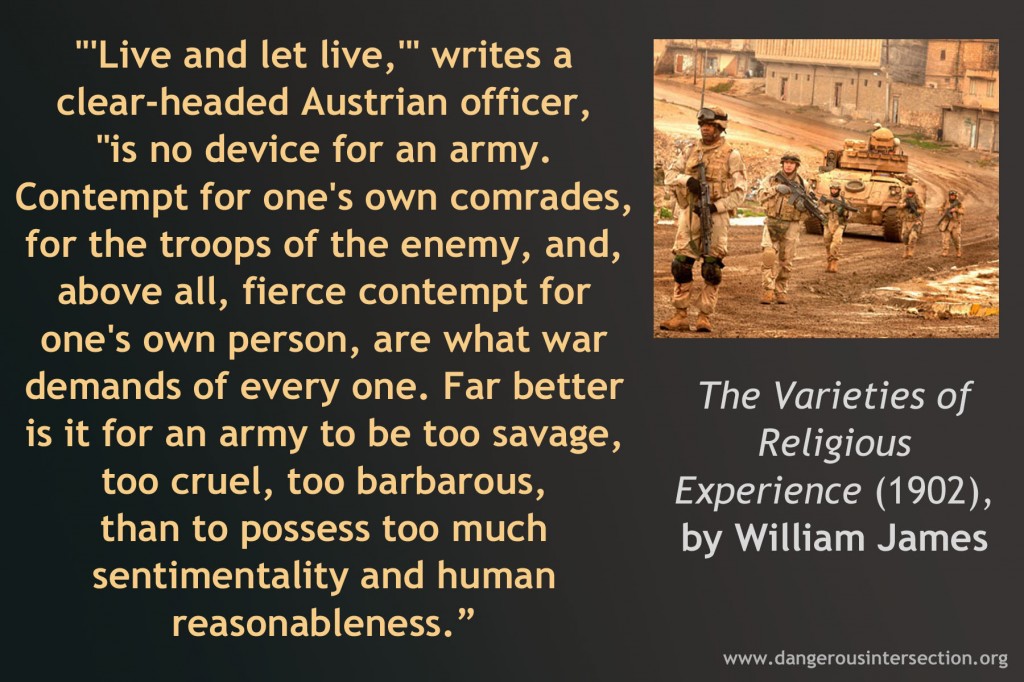Another ugly cartoon of war
This quote about the psychology of war from William James:
 For many more equally somber and insightful observations regarding war, see this post containing excerpts from Chris Hedges' War is a Force that gives us meaning. Also see this quote by Oscar Wilde.
For many more equally somber and insightful observations regarding war, see this post containing excerpts from Chris Hedges' War is a Force that gives us meaning. Also see this quote by Oscar Wilde.
